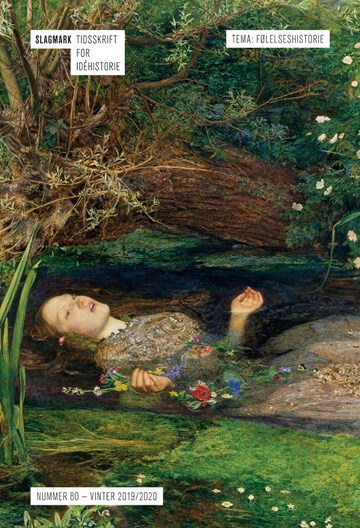“Oplysningens dag er ovre”– Affekt som rationalitetskritik i Weimarrepublikkens intellektuelle miljø
DOI:
https://doi.org/10.7146/slagmark.vi80.136331Nøgleord:
Heidegger, Jünger, Emotion, Criticism, RelativismResumé
“Emotion as an element of contemporary Criticism in the intellectual Environment of the Weimar Republic – A contextual Reading of the Presentation of the Affective in Martin Heidegger and Carl Schmitt”
This article examines a specific use of emotional concepts as well as a particular understanding of the affective in general in the work of Heidegger and Schmitt during the years 1919-1933. The general character of this idea of the affective is that it is developed as an element of a critical engagement with discourses regarding institutional change. Thus, I will be reading the two thinkers in the light of institutional disputes present in the Weimar Republic. Heidegger is read in relation to the question of university reform, with which he was deeply involved in the 1920´s. Schmitt will be analyzed through the political situation of the newly established liberal democracy. In both cases, I will argue that a conception of the affective is developed that serves to attack a perceived relativism. This is seen in the fact that, for both thinkers, certain affective categories are linked to stable existential categories: being for Heidegger and the dichotomy between friend and foe for Schmitt.
Downloads
Publiceret
Citation/Eksport
Nummer
Sektion
Licens
Ophavsretten til artiklerne i Slagmark deles mellem forfatter og Forlaget Slagmark.
Artikler og tekstmateriale publiceret i Slagmark må citeres, downloades og videresendes for ikke-kommerciel brug, under forudsætning af normal akademisk reference til forfatter(e) samt tidsskrift, årgang, nummer og sider.
Brug og distribution af tekstmateriale både i form af papirkopier og elektroniske kopier, til undervisningsbrug på uddannelsesinstitutioner og intern brug er tilladt efter aftale med Copydan Tekst & Node. Brugen skal ske inden for aftalens rammer.
Artikler og tekster må kun genudgives med eksplicit tilladelse fra forfatter(e) og tidsskriftet med en anerkendelse af værkets første publicering i nærværende tidsskrift.





